States where abortion access is on the ballot this year
The Supreme Court’s decision to overturn Roe v. Wade and eliminate the right to abortion access for millions of Americans has placed the issue front and center for the 2022 midterm elections and beyond. In response, Democratic leaders have urged their supporters to vote as a response to the decades-long Republican goal being completed, citing the need for legislative majorities at the state and federal level in order to pass protections.
In some states, the issue of abortion will be on the ballot in November — and in one instance, August. Whether in high-profile gubernatorial races or for proposed amendments to state constitutions, millions of voters will cast ballots directly affecting reproductive rights in their states.
Pennsylvania
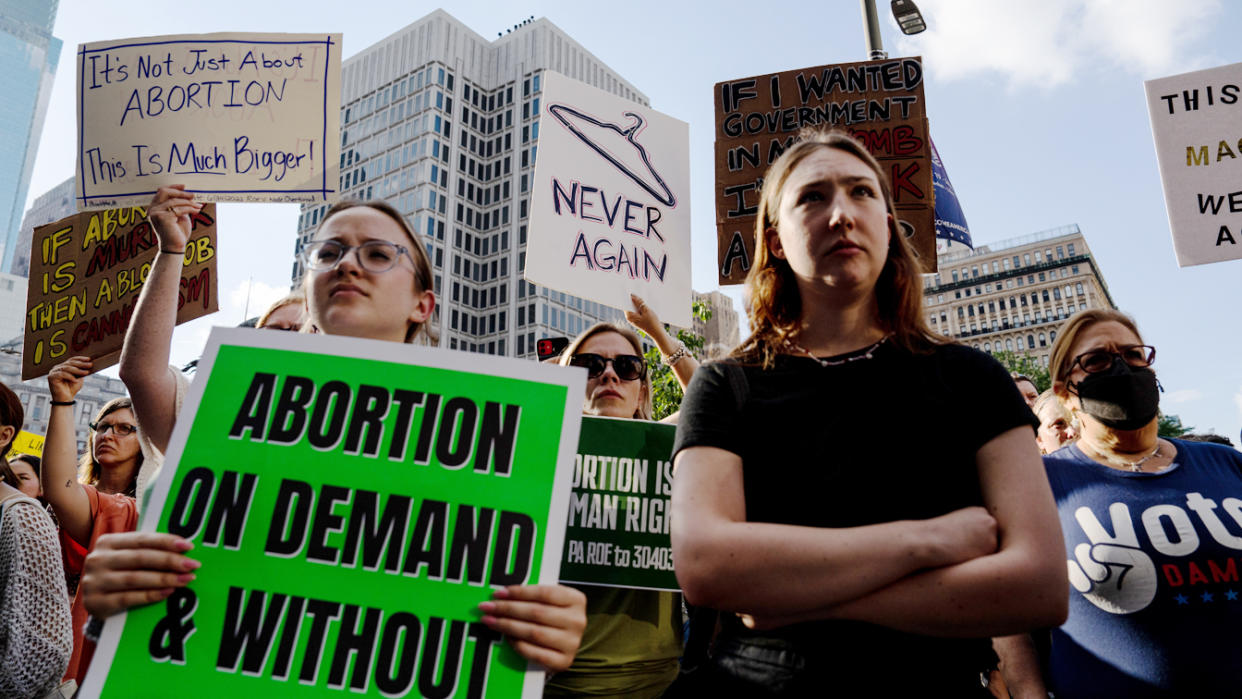
Fewer races have clearer lines than the gubernatorial contest in Pennsylvania, where abortion currently remains legal, with a number of restrictions that have existed for decades. Gov. Tom Wolf, a Democrat, has vetoed multiple bills restricting access to abortion passed by the Republican-controlled Legislature during his eight years in office. With Wolf about to complete his last term under term limits, and the GOP expected to hold the Keystone State’s legislature, the state’s next governor will decide whether any new legislation on abortion will be passed.
The Democratic candidate for governor, Josh Shapiro, the state's attorney general, has vowed since he launched his campaign that he would veto any new legislation restricting abortion access that would come to his desk as governor.
“It's not freedom to tell a woman what she can do with her own body and tell them that the politicians in Harrisburg know better — that's not freedom, and it's not freedom to tell a woman how and when and under what terms she can start a family,” Shapiro said on a press call Friday. “Real freedom, I believe, comes from trusting the women of Pennsylvania to make decisions over their own bodies and to make their own decisions over how to start and when to start a family.”
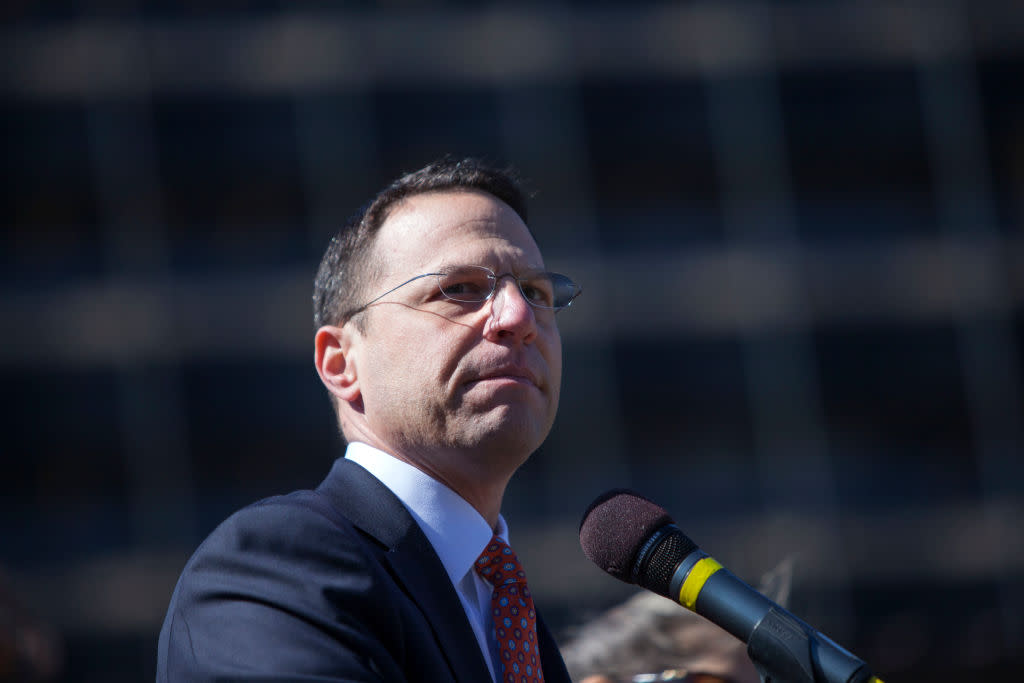
Shapiro’s opponent, Republican State Sen. Doug Mastriano, has said that banning abortion is one of his top priorities, declaring at a primary debate that he would not allow exceptions for rape, incest or the life of the mother. Shortly after taking office in 2019, Mastriano introduced a bill that would have banned abortion after six weeks, before many women know they are pregnant, but it was not passed in the Legislature. Mastriano attended the Jan. 6, 2021, “Stop the Steal” rally at the Capitol, and some top Pennsylvania Republicans unsuccessfully attempted to coordinate against Mastriano, out of concern that his extreme positions would hurt the party in the general election.
"I think my opponent will get a bump with the polls here the next few weeks, because [obviously] it's going to stir his base," Mastriano said after the Supreme Court's ruling on Dobbs v. Jackson Women's Health Organization. "But the reality is, people are going to vote on the economy."
Shapiro has held a narrow lead in the limited polling since the primaries last month, and there’s hope the focus on reproductive rights could assist him. His campaign told Yahoo News that Friday was their single biggest day for online fundraising since the beginning of the campaign and that 71% of the donors to his campaign since then have been new contributors.
Michigan

Democrats in the state have been attempting to repeal a 1931 law that was to have made abortion illegal once Roe was overturned, including in the case of rape or incest. Last month, a court blocked the law from going into effect, amid a challenge from Planned Parenthood arguing that the nearly century-old law violates the state’s constitution. That position has been challenged by Republicans in the state. As of now, abortion in the state remains legal, although some confusion remains.
While the state’s Legislature is currently controlled by Republican majorities, Democratic Gov. Gretchen Whitmer and state Attorney General Dana Nessel have both been staunch supporters of access to abortion. Whitmer has said she will veto any anti-abortion legislation and Nessel has said she would not enforce the 1931 law. But both are up for reelection this fall in a state that has seen tight races at the statewide level in recent years. The composition of the state's Supreme Court, which now has a 4-3 Democratic majority, will also be decided this fall, with two of its seats up for election.
Additionally, advocates in Michigan who support abortion rights are attempting to get enough signatures — at least 425,059 by July 11 — to put the Right to Reproductive Freedom Initiative on the ballot in November. If it were to make the ballot and be approved by Michigan voters, it would create a new constitutional right “to make and effectuate decisions about all matters relating to pregnancy, including but not limited to prenatal care, childbirth, postpartum care, contraception, sterilization, abortion care, miscarriage management, and infertility care."
The effort received an endorsement over the weekend from the rapper Eminem, a Detroit native who tweeted a link about the process to his 22 million followers, along with the message, “As a father it pisses me off that women have fewer rights 2day than just a few days ago… we r f***** goin backwards. Here’s how 2 help in Michigan.”
Wisconsin
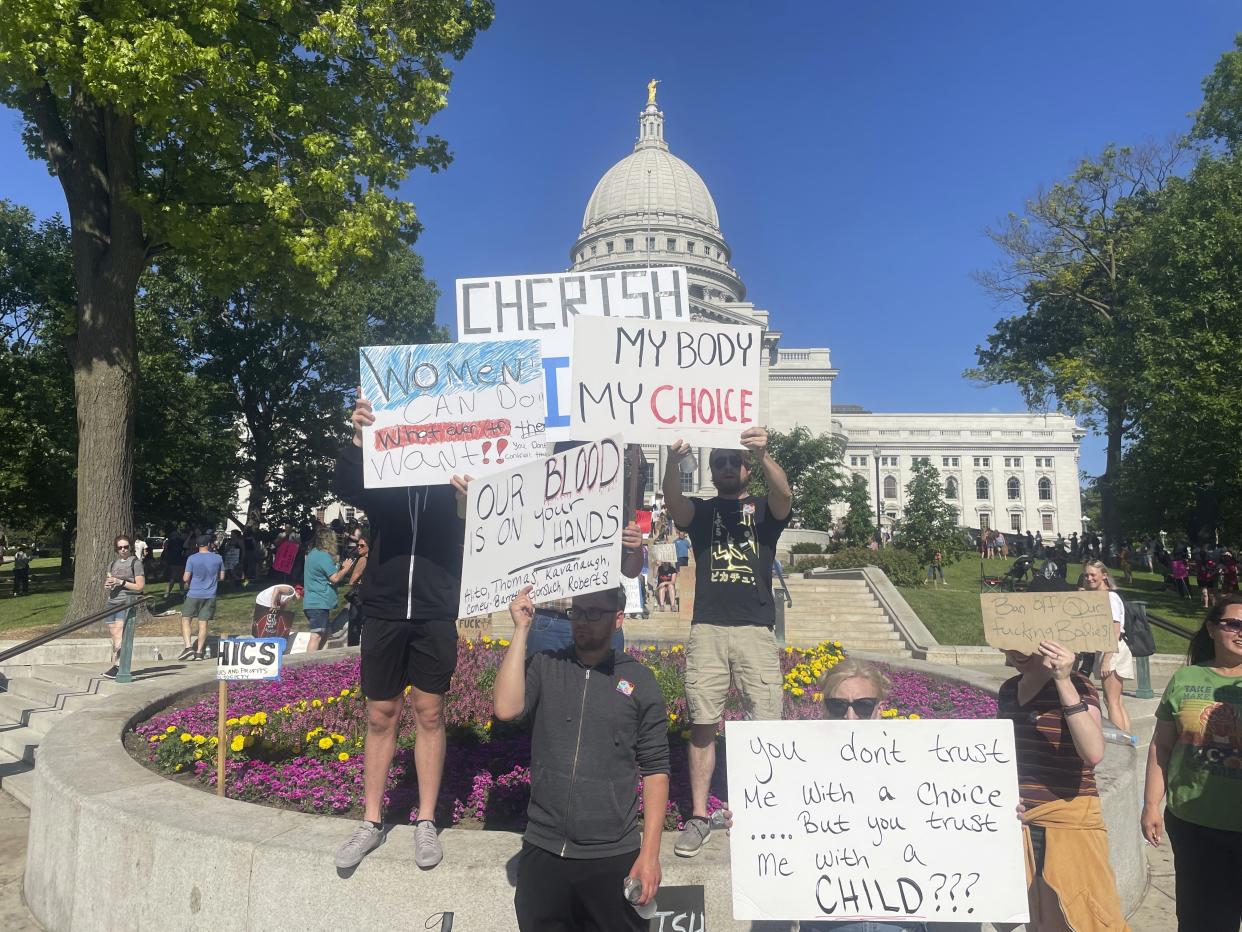
Following the repeal of Roe, abortion became illegal in the state under an 1849 law that is being challenged in the courts by Planned Parenthood of Wisconsin. Democratic state Attorney General Josh Kaul said he would not enforce the law, and Gov. Tony Evers, a Democrat, said Saturday he would offer clemency to any physicians charged under it.
“The 1849 law says that anybody that provides an abortion is subject to a felony, one to six years. Did you ever think about the word clemency? I will provide clemency to any physician that is charged under that law,” Evers said at the state party convention, adding, “I don’t think that a law that was written before the Civil War, or before women secured the right to vote, should be used to dictate these intimate decisions on reproductive health.”
Both Evers and Kaul are facing tough reelection campaigns this fall, meaning that if the law stands, anti-abortion Republicans could be in a position to enforce it next year. Benefiting from a GOP gerrymander of constituency boundaries, Republicans are expected to hold the state Legislature, where, earlier this month, they ignored a call from Evers to address the 1849 law.
“Wisconsin law has not changed, and our pro-life position has not changed. Killing innocent babies is not health care,” said Senate Majority Leader Devin LeMahieu. “We will gavel out of another blatantly political special session call from this partisan governor.”
Kansas
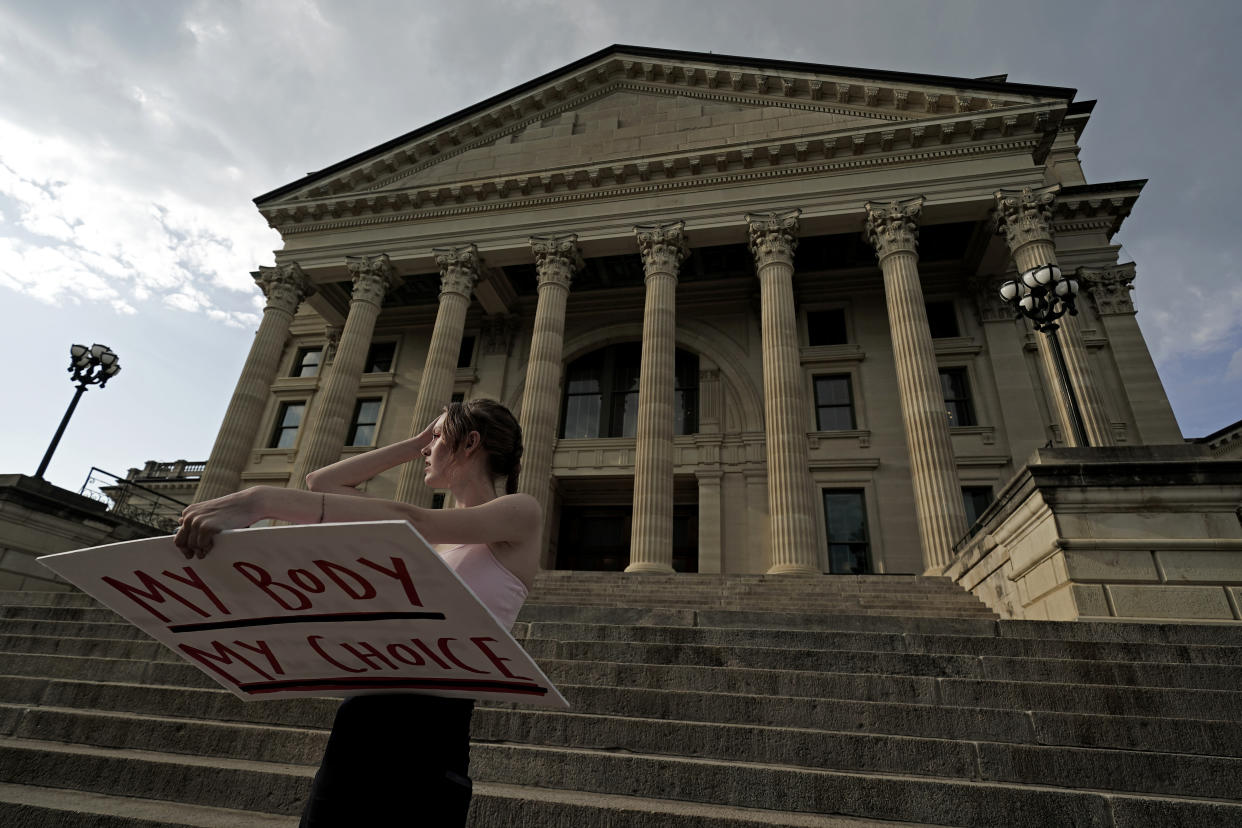
Voters in Kansas will not have to wait until November to weigh in on the issue, as the question of whether the state’s constitution includes protections for abortion will be decided on the Aug. 2 primary ballot.
In 2019, the state Supreme Court issued a 6-1 ruling in which they found the existing Kansas constitution “enables a woman to make decisions regarding her body, heal th, family formation, and family life, including the decision whether to continue a pregnancy,” concluding “this right to personal autonomy is fundamental.”
Republican legislators followed by moving forward with a constitutional amendment, voting along party lines to place it on the primary ballot as opposed to November’s general election, in hopes of putting the issue before a smaller, more conservative electorate.
A yes on the measure “would affirm there is no Kansas constitutional right to abortion or to require the government funding of abortion” while a no on the GOP-written initiative “could restrict the people, through their elected state legislators, from regulating abortion.” While the amendment would not immediately ban abortion in the state, at least one bill has already been introduced that would do so if it were passed.
Kansas’s Gov. Laura Kelly, a Democrat who is up for reelection in November, opposes the measure and told the Kansas Reflector last week, “If people in the state of Kansas vote no on that amendment, then the status quo will remain. And women’s reproductive rights will remain constitutional here in the state of Kansas.”
Kentucky
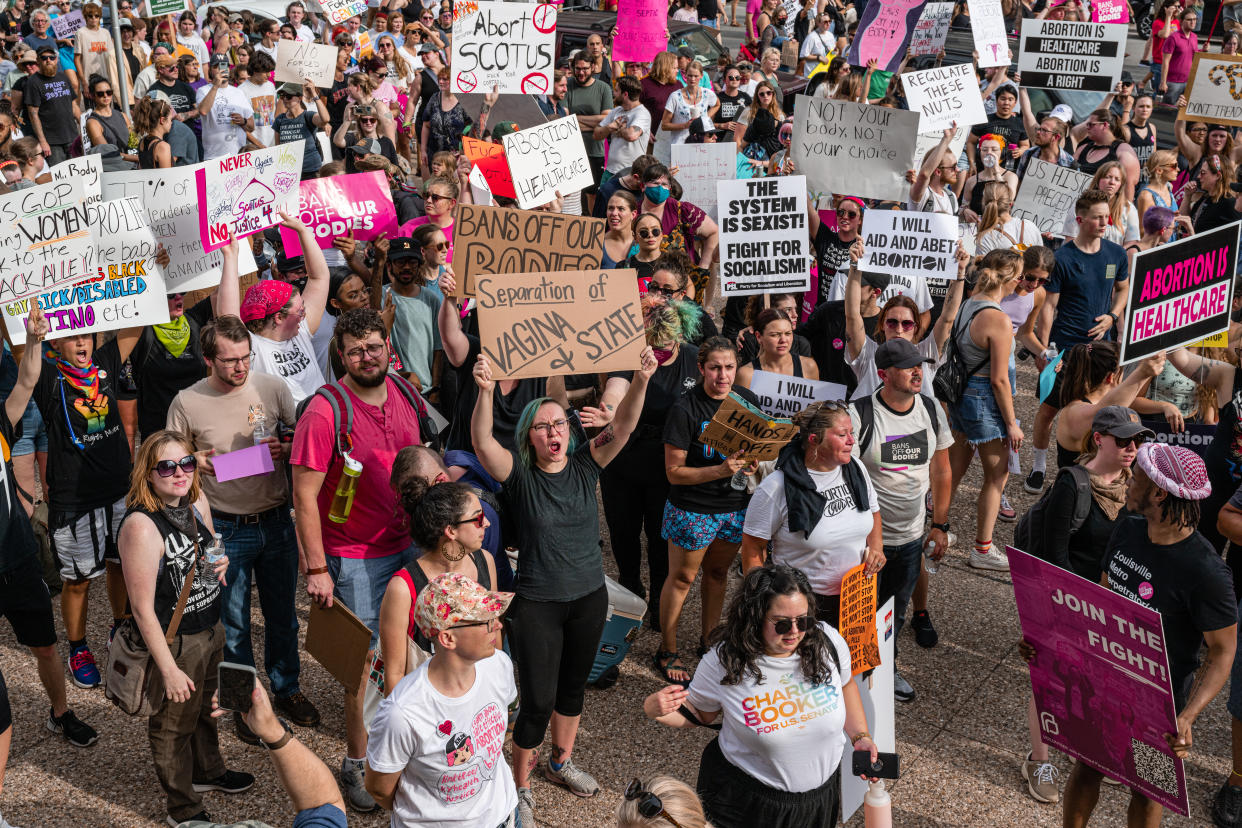
As in Kansas, Republicans in the state Legislature have moved to place a constitutional amendment on the ballot which would add the following language: “To protect human life, nothing in this Constitution shall be construed to secure or protect a right to abortion or require the funding of abortion.”
While Kentucky had a “trigger law” in place that was set to ban abortion if Roe were ever overturned, a lawsuit filed Monday by supporters of abortion rights sought to restore access to the procedure, based on the current language of the state constitution. Republicans in the state, including Attorney General Daniel Cameron, have said that the constitution does not provide any protections.
“To be clear, there is no right to abortion contained in the Commonwealth’s constitution — and we will stand up against any baseless claim to the contrary," Cameron said. "I have always stood strong in defense of life, and I will continue to advocate for our laws, which protect pregnant women and unborn babies."
California
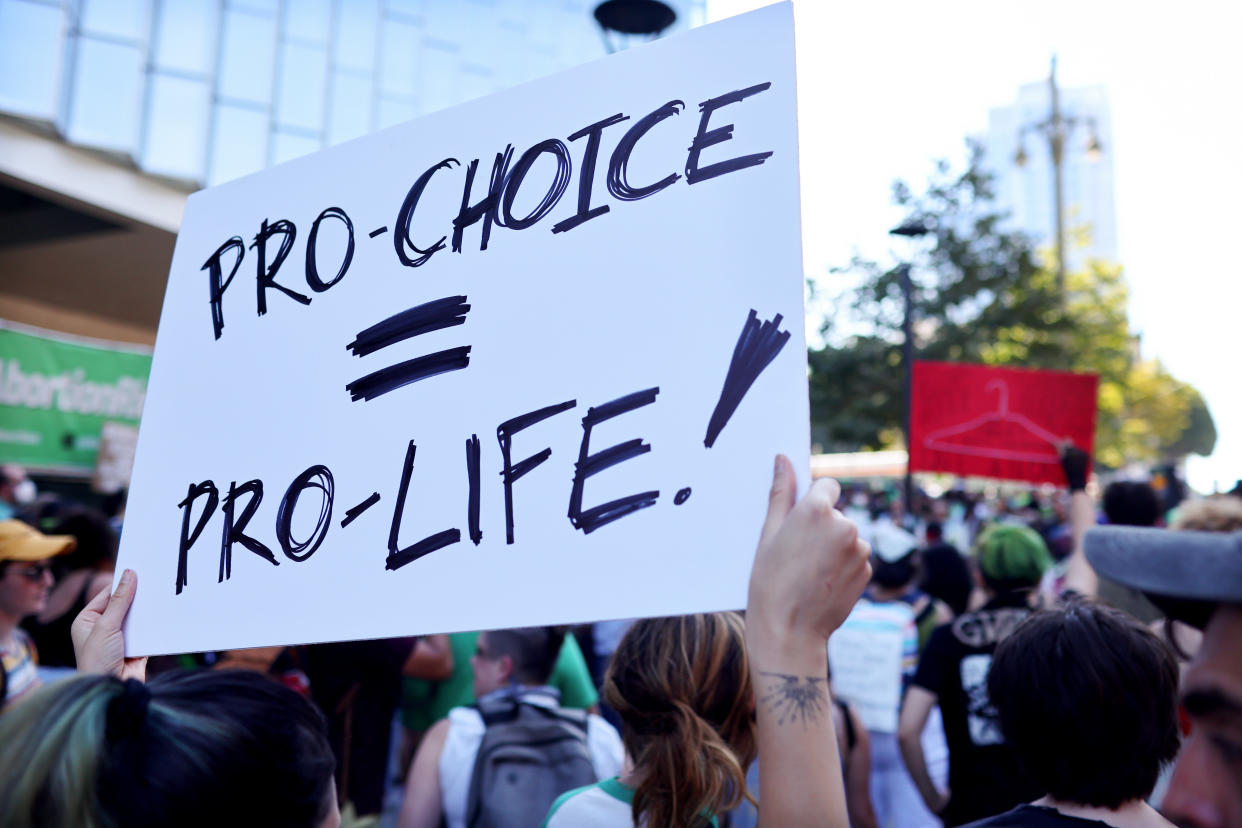
On Monday, days after the court’s ruling overturning Roe, the California State Assembly passed a law placing a constitutional amendment on the ballot that if passed this fall would explicitly protect the right to an abortion.
“We know from history that abortion bans don’t end abortion,” said Assembly Speaker Anthony Rendon, a Democrat who co-authored the measure. “They only outlaw safe abortions. We must preserve the fundamental reproductive rights of women here in California, because they are under attack elsewhere.”
Gov. Gavin Newsom, a Democrat, has moved to make California a “sanctuary” state for those seeking abortion, including signing a law Friday that would protect patients or medical providers from lawsuits filed by other anti-abortion states. On Monday, Newsom and the governors of Oregon and Washington announced an agreement stating that the West Coast would stand united in supporting access to abortion.
Montana
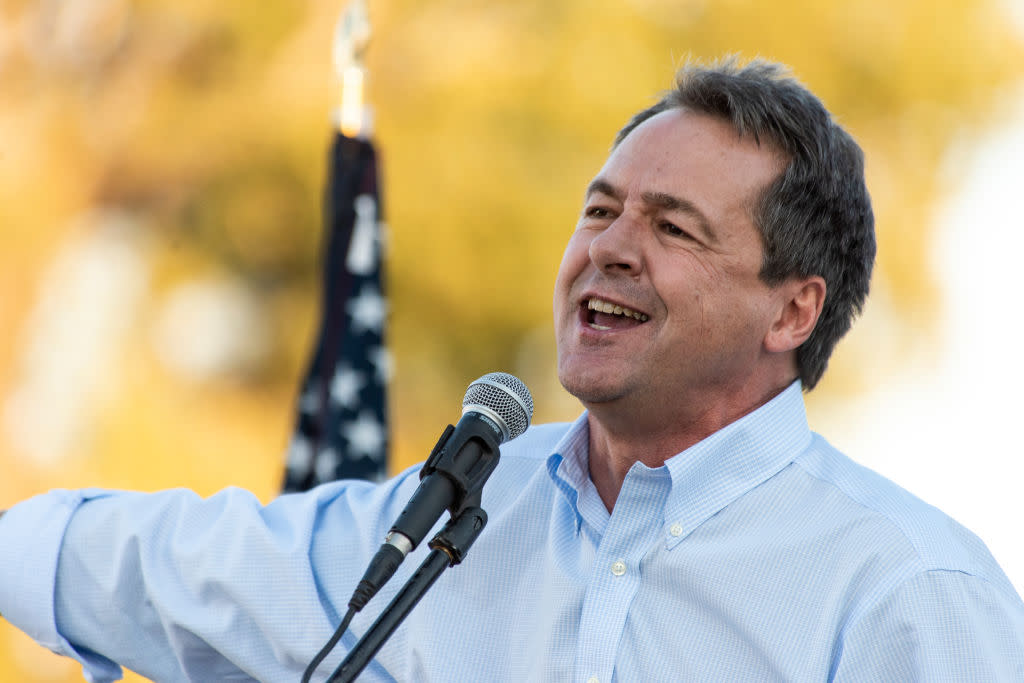
Voters in Montana will decide on LR-131, or the Medical Care Requirements for Born-Alive Infants Measure. If passed, it would create a law that states “infants born alive at any stage of development are legal persons” and “require medical care to be provided to infants born alive after an induced labor, cesarean section, attempted abortion, or another method.” Medical providers who violated the law would face a $50,000 fine and/or 20 years in prison.
Then-Gov. Steve Bullock, a Democrat, vetoed a similar piece of legislation in 2019, calling it “a reflection of a divisive national debate that has little to do with the health of infants or women” and stating, “The situation [the bill] purportedly seeks to address is a medical practice that does not exist. This bill does nothing more than politicize decisions that are deeply personal and medically complex. I believe women, families and health care providers are best able to make these difficult medical decisions without political interference that is meant only to inflame and cause division.”
Vermont
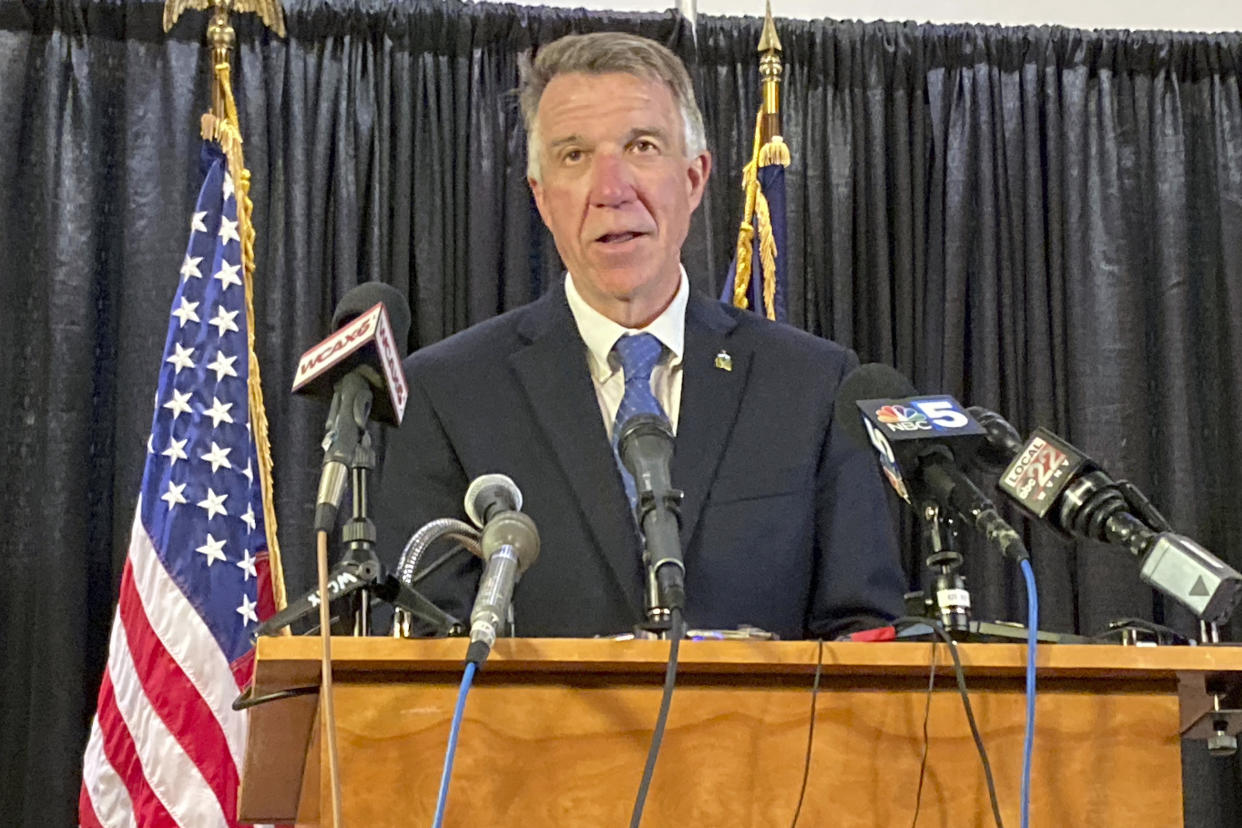
Abortion is currently legal in Vermont, but voters there will have the ability to enshrine that protection in the state’s constitution in November. Proposal 5 would add “That an individual’s right to personal reproductive autonomy is central to the liberty and dignity to determine one’s own life course and shall not be denied or infringed unless justified by a compelling State interest achieved by the least restrictive means.”
To get on the ballot, the measure was passed by a comfortable majority in the state Legislature and received the support of Gov. Phil Scott, a Republican. In a statement after the overturning of Roe, Scott said he would be formally providing public notice of Proposal 5 and reiterated his support for it.
“In 2019, I signed a law that affirmed the fundamental rights of all women and ensured reproductive health decisions remain between a woman and her health care provider. That does not change with this ruling,” Scott said. “Additionally, in November, Vermonters will be able to further solidify this action with a constitutional amendment on the ballot. As I have said, I will be voting for that amendment, and I encourage Vermonters to stand up for the rights of women and do the same.”
The ballot measure passes with the support of a majority of voters. A 2014 survey from Pew Research found 70% of respondents in the state saying abortion should be legal in all or most cases, as opposed to 26% who said it should be illegal in all or most cases.
